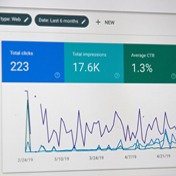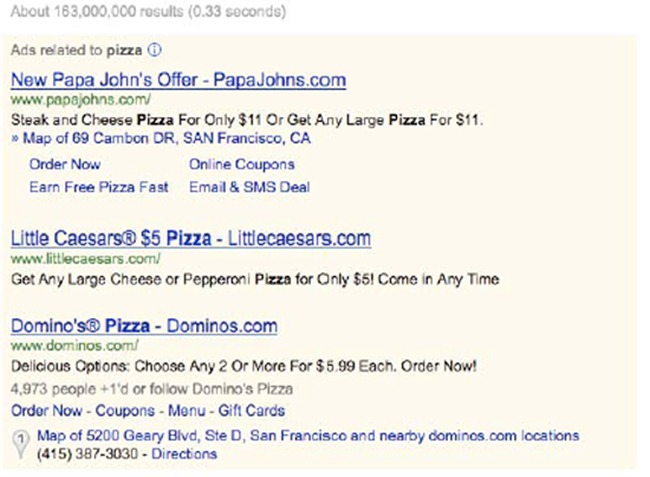Search Engine Marketing (SEM) – What You Need to Know
By SheaAugust 26, 2020
Search Engine Marketing (SEM) – Also Known as Pay Per Click (PPC)
There’s no question that your online presence has become an important part of your business or organization. Between your own website, social media sites, and search engines like Google and Bing, lots of time must be invested to ensure you’re visible to your customers. PPC advertising, or Search Engine Marketing as it’s often referred to, is a great and quick way to beef up your online presence and ensure you’re visible to people who are interested in what you have to offer. 
For those unfamiliar with search engine marketing, SEM is a form of targeted marketing that allows you to be able to advertise your business on search engine results pages. This involves bidding on keywords so that your ad is shown when those particular keywords or phrases are searched. You then pay the bid amount every time someone clicks on the ad. SEM is advantageous because it allows you to target very specific audiences who are actively searching for your offering. Below we’ve listed some of the pros and cons of Search Engine Marketing so you can decide if it’s right for your biz.
Search Engine Marketing – The Pros:
Get in front of a large audience
Search Engine Marketing gives you the ability to get your company name and services in front of a large, interested audience. In Google, alone there are over 400 million queries a day. Obviously not all would apply to your business, but you can get an idea of how many people you may be able to reach. The more visible you are to interested searchers, the more opportunities you’ll have to capture new customers.
Be as targeted as you want to be
One of the main advantages to SEM is that it can very targeted. Besides being able to bid on specific relevant keywords and phrases, platforms like Google Adwords allow you target based on specific devices, locations, times of day, and languages.
Search Engine Marketing is cost effective
SEM can be very cost efficient. It’s cheaper than traditional forms of advertising such as TV or Radio, and it’s also better targeted. Since you’re only paying for clicks to keywords or phrases relevant to your business, it allows you to spend your marketing dollars wisely.
Flexibility for your business
Specifically within Google Adwords, there are features that allow you to use “extensions.” Google defines extensions as “a feature that displays extra business information with your ad such as an address, phone number, more webpage links, product images, and/or pricing information.” Ad extensions can be particularly useful for local businesses. According to Webarts, over 70% of online users conduct local searches for information on a variety of products and services. For example, if you have a brick and mortar location, you can encourage people to visit or call your physical store by including address and phone information with your ad by using location or call extensions. Additionally, being able to use different targeting features like the ones listed above, helps to accommodate all different types of organizations. Here’s an example below of how local business use extensions:

Quick changes with long-term results
PPC works a lot faster than other methods like SEO. SEO often takes many months because you have to “build it up” before you’ll be able to see results. With SEM, you can quickly start a campaign and begin advertising right away. Once you’ve figured out a winning formula, it can push you to long-term success.
Search Engine Marketing – The Cons:
Fully understanding PPC Advertising and Tools
Because Search Engines like Google Adwords have so many features and capabilities, it can take quite some time to learn the in and outs of the platform. With a variety of bidding and targeting options, it can be overwhelming and complicated. Before you start actually running your campaign, it’s important to make sure you understand PPC advertising, as well as how to properly use the available features to your advantage.
SEM requires time and ongoing maintenance
Search engine marketing requires that you monitor and update your campaigns constantly. It takes time to figure out the right combination of ad text, targeting, bidding and landing page optimization. That’s why testing is a critical aspect to SEM in order for your campaigns to ultimately be successful and profitable. Whether it’s making sure your spend isn’t getting out of control, or testing different ad copy to see what works best, you could be missing out on opportunities if you’re not constantly monitoring and analyzing your results.
Cost can be prohibitive
Even though we previously stated that SEM was cost efficient, it can also be cost prohibitive depending on your space/industry. Popular keywords can be very expensive sometimes costing $30 dollars or more per click. Since PPC advertising is essentially an auction system, it may be tough to out bid competitors with deeper pockets and larger budgets.
Also if you don’t have the necessary expertise, which most people don’t, you may not be running your campaigns as best as you could and therefore be overspending. You may need to invest several months getting up to speed.
Search Engine Marketing: Conclusion
Having a well-rounded online presence is essential to your business growth and SEM is a great way to do it. The advantages of SEM can outweigh the disadvantages, but every company is different. SEM is definitely worth trying out – Use a small test budget to see if it works for your business. By focusing on longer keyword tail phrases, you may be able to narrow in on more profitable phrases with less competition, therefore keeping your marketing spend down.
Checkout our SEM packages on our sister site here Search Engine Marketing (SEM) Packages
